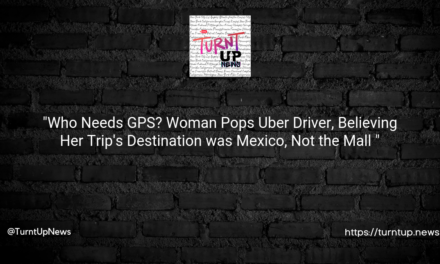💸💰 Is Your Venmo Stash a Ticking Time Bomb? 💣⏰
TL;DR: 🚀 Zooming in on the risk side of the digital coin, the Consumer Financial Protection Bureau (CFPB) warned that keeping your precious greenbacks 💵 in payment apps like Venmo, PayPal, and CashApp might not be the safest bet. Why, you ask? Well, they’re not exactly Fort Knox when it comes to financial crises. After recent bank runs, the watchdog reminds us that these digital wallets aren’t exactly traditional banks, thus they’re not covered under FDIC insurance, unless you do some hoops and loops 🎪. Now, doesn’t that give you some food for thought 🤔?
Picturing a beautiful future with that nest egg you’re stashing in Venmo or CashApp? Well, the Consumer Financial Protection Bureau (CFPB) has got some news for you: You might be sitting on a financial time bomb 💣. Remember that game of hot potato we used to play? Yeah, it’s kinda like that, but with your money. 💰
A couple of weeks ago, a mass panic caused bank runs at Silicon Valley Bank, Signature Bank, and First Republic Bank. The crowd went wild, uninsured depositors raced to withdraw their moolah. Imagine a Black Friday sale, but in reverse and with more anxiety 😱.
Now, think about this for a second: these are banks we’re talking about. The kind of institutions that have armored trucks, vaults, and the reassuring comfort of Federal Deposit Insurance Corporation (FDIC) insurance. But what about our favorite payment apps, the ones we so trust with our midnight snack purchases and cab fares? Well, they’re not exactly in the same league 🏈.
Sure, there might be some ‘pass-through’ insurance if you do certain activities with these apps, according to the CFPB. Like if you were to open a PayPal Savings account, you’d have deposit insurance through Synchrony Bank. But your general PayPal account? It’s out in the cold ❄️. Apple Cash, on the other hand, can get some coverage if you verify your identity through Green Dot Bank. But, do we always read the fine print? 😎
Peer-to-Peer payment apps have become the “it” thing, with Venmo now boasting over 90 million users, and even planning to rope in teenagers by allowing parents to create accounts for them. Talk about cultivating customer loyalty young! 👶 And let’s not forget Apple’s new savings account tied to the Apple Card, operated by Goldman Sachs, which raked in billions of dollars in mere days. Sounds fabulous, right?
Well, before you join the parade, here’s something to chew on: “We find that stored funds can be at risk of loss in the event of financial distress or failure of the entity operating the nonbank payment platform, and often are not placed in an account at a bank or credit union and lack individual deposit insurance coverage,” warned the CFPB.
Now, the Financial Technology Association, which includes the big boys like PayPal and Cash App’s owner Block, has assured that their products are safe, and FDIC insured, depending on the products used. Sounds reassuring, but where’s the guarantee?
So, the real question here: Are we putting too much faith in technology, or is it time to start questioning the safety nets (or lack thereof) of these non-traditional banking platforms? Let’s remember, money makes the world go ’round, but it also needs a safe place to crash. 🌍💤
What are your thoughts? Will you continue using these payment apps with the same confidence?





